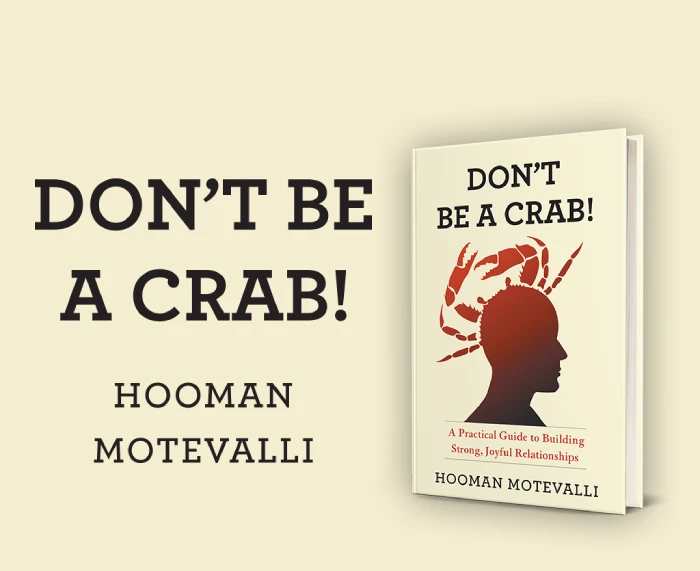In every workplace, you’re bound to be working with different personalities. This diversity in the workplace can be a source of strength, depth, and creativity, but it also presents its own problems. These personalities are bound to crash; when they do, a crisis arises due to differences in communication and understanding.
The key to working with different personalities at your workplace is to understand each personality type, appreciate their unique strengths and contributions to work, and learn how to talk to them and work to fit their style to improve teamwork, productivity, and a healthy working environment.
So, it’s important to spend time and effort learning about working with different personalities and how to interact with them. Whether you own a company, work in one, or work alone, learning to work with different personalities is important.
Working With Different Personalities
Working with different personalities requires that you understand them first. This involves recognizing the characteristics of each type and understanding their strengths and shortcomings. In this post, you’ll learn about different personality types and how to work with them.
Introverted Personalities
When working with different personalities, introverted personalities tend to be quiet and thoughtful and prefer to work independently or in small groups. They can be great listeners and deep thinkers but may have difficulty expressing themselves in large group settings or under pressure.
When working with introverted personalities, giving them space and time to think before they speak is important. Introverted personalities may need breaks from social interactions to recharge their energy; this could be asking for a short break from work.
It is important to provide them with opportunities for solitary work or quiet environments where they can focus. Understanding and respecting their need to work alone can greatly enhance their productivity and well-being.
Extroverted Personalities
When working with different personalities, one of the most common personalities you’re bound to come across is extroverted. They are outgoing and thrive in social situations. They are typically comfortable speaking their minds and enjoy being in the spotlight. They can be great at networking and motivating others, but they may also become impatient or bored when they work alone.
When working with people with different personalities who are extroverted, it’s important to provide them with opportunities for interaction and discussion where they can freely express themselves. They tend to excel in team-based environments where they can collaborate, brainstorm, and bounce ideas off others. They thrive in lively, dynamic workplaces that encourage open communication and brainstorming sessions.
People-Oriented Personalities
People-oriented personalities thrive on interactions and relationships. They are often empathetic, cooperative, and excellent at building and nurturing relationships within the team. However, they may need help with tasks that require a high level of analytical thinking or working alone.
When working with different personalities that are people-oriented, it’s important to involve them in team activities and discussions. They appreciate a supportive and friendly work environment. They value open communication and collaboration, and they enjoy brainstorming ideas with others.
People-oriented personalities are skilled at resolving conflicts and mediating disagreements, making them valuable assets in team dynamics. Their ability to understand and relate to others’ emotions allows them to build strong connections and a positive atmosphere within the team.
Detail-Oriented Personalities
Detail-oriented personalities are meticulous and take an organized approach to tasks. They excel at tasks requiring precision and organization but may need help with abstract or big-picture thinking.
When working with different personalities that are detail-oriented, it’s important to provide clear, detailed instructions and to be patient, as they may take longer to complete tasks to their high standards. However, their attention to detail ensures that errors are minimized and the quality of work is top-notch.
Detailed-oriented personalities are reliable and can be trusted to thoroughly review and double-check their work before submitting it. They are often the go-to team members for proofreading, data analysis, and quality control. Their dedication to accuracy and ability to spot even the smallest mistakes make them valuable assets to any team.
Big-Picture Personalities
Big-picture personalities are visionary and often think in broad terms. They excel at strategic planning and innovative thinking but may struggle with tasks requiring attention to detail. When working with personalities that only see the big picture, it’s important to share a project’s overall vision or goal. They appreciate being able to see how their work contributes to the bigger picture.
Remember, everyone is unique and may not fit neatly into one category. The key is to observe and understand the preferences of the people you’re working with and adapt your communication style accordingly. This can greatly improve your ability to work effectively with people of different personalities.
Analytical Personalities
Analytical personalities are detail-oriented individuals who value facts, precision, and logic. They often excel in problem-solving and decision-making roles, but their focus on details can sometimes hinder their ability to see the bigger picture. To work effectively with analytical personalities, it’s important to provide them with clear, detailed information and give them the time they need to process and analyze it.
They appreciate a structured and orderly environment, so avoiding last-minute changes and surprises is crucial. These individuals thrive when given tasks that require critical thinking and attention to detail. Their meticulous nature often makes them excellent researchers and data analysts.
However, it’s important to remember that their inclination to overanalyze can lead to indecisiveness or reluctance to take risks. By understanding and accommodating their need for information and stability, collaborative efforts with analytical personalities can yield efficient and well-thought-out outcomes.
Expressive Personalities
Expressive personalities are outgoing, enthusiastic, and social. They are great communicators and can effortlessly win people over with their charm. However, they may struggle with tasks that require a high level of detail or structure. When working with expressive personalities, it’s important to engage them in a dynamic, interactive environment.
They thrive on recognition and positive feedback, so acknowledging their contributions can boost their motivation. Their ability to connect with others and build relationships can be a valuable asset in team settings, as they can bring a sense of energy and collaboration to the group.
However, it’s important to provide clear expectations and guidelines to help them stay focused and organized. Their creativity and quick thinking can lead to innovative solutions, but it’s important to balance their enthusiasm with the need for structure and attention to detail.
Amiable Personalities
Amiable personalities are friendly and supportive and value harmony in their interactions. They are great team players and have a knack for resolving conflicts. However, they may avoid confrontations and have difficulty making tough decisions. To work effectively with amiable personalities, it’s important to create a supportive and non-threatening environment.
They appreciate being part of the decision-making process and value relationships, so taking the time to build a personal connection can go a long way. By recognizing their strengths in building relationships and promoting teamwork, amiable personalities can contribute significantly to a positive and cohesive work environment.
Their ability to resolve conflicts can help diffuse tense situations, but it is important to provide them with a supportive atmosphere where they feel comfortable expressing their opinions and concerns.
Driver Personalities
When working with different personalities, another type of personality you may encounter in the workplace is the driver personality. These individuals are typically assertive, competitive, and high-achieving. They value efficiency and results and strongly desire to lead and make decisions. However, their need for control can sometimes come across as aggressive or overbearing.
When working with drivers’ personalities, being concise and to the point is important. They appreciate efficiency and prefer to spend their time on relevant details. Providing clear goals and expectations can help them stay focused and motivated. It’s also beneficial to allow them to take charge of projects or tasks, as this fulfills their need for control and achievement.
Reflective Personalities
Reflective personalities are thoughtful, calm, and introspective. They prefer to work independently and enjoy having the time and space to think deeply about their tasks. While they are great at focusing on tasks for long periods, they may struggle with spontaneous changes or high-pressure situations.
To effectively work with reflective personalities, respecting their need for independence and quiet is important. Avoid rushing them or pushing them into quick decisions. Instead, give them time to think and reflect on their work. Recognize that their thoughtful approach often leads to high-quality work and innovative solutions.
Conclusion
The art of working with different personalities is not just a skill but a transformative approach to achieving success in any workplace. As we’ve explored the strategies for navigating through the diversity in individual personalities, it becomes clear that there’s a need to understand, embrace, and leverage the unique strengths that each individual brings to the table.
In my book “Don’t Be a Crab,” I teach you how each individual brings unique strengths and perspectives to the table and how the most successful teams can often harness this diversity to fuel creativity, innovation, and productivity.









